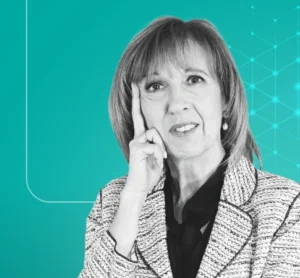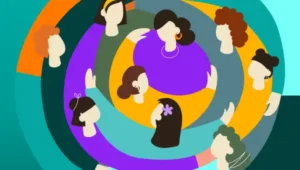Former Emerging Markets General Manager at Microsoft LATAM:
Luiz Marcelo “Piu”: Why the AI industry must stop avoiding the hard questions
By Amy Franklin Casanova
Technology and Education
24/09/2025
Luiz Marcelo, known as “Piu”, is a prominent figure in the Latin American tech world. Former COO of Microsoft Brazil, VP of Marketing, Strategy and Transformation for Latam and former President for Microsoft Chile and LATAM Emerging Markets, he now serves on the Advisory Board of Fundación del Saber and dedicates his time to advisory boards as well as social and impact investment initiatives. In this interview, Piu reflects on his career, the present and future of artificial intelligence (AI), its ethical, social, and economic implications, and how we should prepare for an unprecedented transformation.
Where does the nickname “Piu” come from?
Since I was 14, people have called me that, after Tweety Bird. Everyone thought I resembled Tweety, and the nickname stuck. In the tech world, many three-letter acronyms are used, and “Piu” was perfect. My personality is friendly and approachable, so it also fit the character.
How did you get interested in technology?
I’ve been interested from a young age. My dad gave me a TRS-80, a Tandy Radio Shack computer, and I started programming. I was a teaching assistant in computer classes for kids. Later, I earned degrees in Business Administration and worked in risk management, finance, using tools like Lotus 1-2-3 and Quattro Pro. I was the person creating spreadsheets, calculations, projections, graphs, and presentations, which eventually led me to Microsoft, where many opportunities opened.
How did you get to Microsoft?
It was driven by my passion for the field, the business opportunities, and the need to move where the opportunities were. There were two main paths: a former manager from a previous company I worked at—Unilever—went to Microsoft and identified a job opportunity that aligned closely with my skills. The second reason was that I started dating my wife at Unilever; she was my boss at the time, and we couldn’t work together.
At that very moment, Windows 95 was launching—revolutionizing technology for everyday people, both at home and in the workplace. With the arrival of the graphical interface, people could finally interact with computers without needing to understand the underlying technology.
What was your favorite role?
The leadership role of President or CEO gives you the opportunity to work across multiple areas—strategy, products, culture and P&L – and to impact people, partners, communities and customers. It’s a 360° kind of role. I enjoyed being close to business operations, actively participating on what’s happening; I guess I’m also passionate for problem solving. Since then, I’ve adopted the mindset “It’s about people”, which guides my leadership style.
Any experience that has significantly impacted you from your “It’s About People” perspective?
Several. First that comes to my mind was during my early manager experience a team member was awarded for a challenging project. I felt like a proud parent, so happy for his success like it was mine; success of others became a true part of my mission as a leader.
In my mission as a leader, I also recall the 2010 earthquake in Chile; we formed a diverse team to help employees, customers and communities, regardless of hierarchy. It was a leadership example with purpose and deep impact. We changed company resources to support employee families in hotels, reassigned leadership vehicles to support employees in need, “here’s a diesel car that goes 600 km (about 372.82 mi), so you’ll go retrieve your family in Concepcion and bring some resources to help others on the way”. (At that time, roads in Chile were devastated, and fuel was scarce.)
It was interesting to train this team so they could carry us forward despite the challenging situation, which wasn’t conducive to quick, prescriptive or simple solution; definitely one of the most rewarding experiences in my career.
This perspective is very aligned with Fundación del Saber, being part of the Advisory Board. What motivated you to join at this stage of your life?
I no longer hold a corporate role; I contribute with my experience in business, people management, multicultural and multiregional strategies. I am passionate about dedicating time to generating human impact, inclusion, creating opportunities, and reducing inequalities, all them aligned with FDS mission.
Opportunities and Challenges of AI
What’s your view on intellectual property in AI?
It’s complex. Some monetize content they didn’t produce or license. A balance is needed between creators, distributors and platforms. The same happened in the past with music: 20 years ago, we had platforms like Napster, and then Spotify and others emerged, creating a more balanced environment between content creators, distributors and platforms.
Today, bargaining power is highly concentrated in a few platforms, which is disproportionate relative to content creators. When you reach concentration of power that becomes unfair to customers or creators/suppliers, regulation is needed.
And what about job losses due to AI?
This concern is so important but underestimated. The industry and policymakers are hesitant to address the issue. There has never been a technology with intellectual capabilities surpassing humans—this was called singularity before, or AGI (Artificial General Intelligence) more recently; but now we talk about ASI (Artificial Superintelligence). This forces us to rethink economic models, discuss universal basic income, or minimum wages. And even if we can address that, spirituality, mental health, purpose becomes central point to address the use of free time. I imagine there will be a boom in tourism and entertainment driven by self-indulgence, and people might only work two or three days a week. Consumption of drugs and alcohol may rise. These will be disruptive changes we are not yet prepared for, and it will be a topic for future generations: how do we create this new lifestyle and economic model?
How do you interpret the P(doom) of 10–25% mentioned in articles like Axios? Do you think we’re close to superintelligent AI and that ethical governance will be possible?
The possibility of a disruption is high; this 10 to 25% estimate could be even higher. The short-term benefits are significant, and society tends to try to absorb these benefits as quickly as possible, directly impacting areas of public interest like innovation, security, creativity, health, longevity, and the creation of new opportunities. But in the long run, the challenges will be greater. Our society is not acting proactively.
OpenAI warns about very powerful models that could, for example, facilitate the creation of bioweapons. From your perspective, what measures should the software industry adopt?
Regulation and control are crucial for establishing a common framework between countries. You mentioned bioweapons as an example, but I believe that scenario applies to many other situations—banking security, individual identity, weapons scenarios, and applications of AI in areas like discrimination and social control systems.
What is the most important concern regarding AI?
The key is to have more open and transparent discussions about its benefits and risks. Obviously, the industry focuses heavily on benefits and often avoids discussing risks, and people sometimes lack the technical depth to understand the dangers involved in collective use. We operate in a highly polarized society and less towards collective good, and the inability to open space for these discussions also reduces our capacity to seek consensus and dialogue.
What about cyber-attacks and manipulation of information?
One of the growing challenges we are facing is distinguishing what is real and what is fake—AI sometimes contributes to this ambiguity. There are risks of malicious actors controlling systems and ideas, there was this example of an AI negotiating its own existence, lying, and manipulating information for self-preservation. It’s concerning to consider how these hallucinations or practices of AI might evolve if they go beyond moral, ethical, and legal control.
Regarding these technical solutions, what perspective should software developers or computer scientists adopt?
To stay one step ahead. The role of developers must evolve—becoming not only technical but also responsible in principles, policies, and ethics. They need to understand how technology is applied. We’ll be living in a world where bad actors will always seek paths we’re unprepared for, and we must start identifying these risks quickly, creating solutions that allow us to act and course-correct much faster than we have in the past.
And the users?
They need to educate themselves and be more selective about the information they see and share. For example, submitting DNA to learn about your family history could be used by insurance companies. Or giving your personal info to an LLM could eventually feed Systems and companies with information that will impact you. Most people don’t realize that this could happen while they focus on the short team benefits.
Is AI a friend or a challenge?
Both. Like many things in life. A chemical can be a medicine or toxic. Habits, knowledge, or thoughts—positive when used with proper focus and quantity, but it can also be very negative, especially if combined differently or in disproportionate amounts. We need to adopt a more external perspective on these tools to make decisions, rather than viewing them as simply good or bad.
What would you say to students who are already at Jala U or considering applying for a scholarship?
I would say that personal development cannot be delegated. Jala and the Fundación del Saber provide tools, support, and opportunities, but the initiative must come from each individual.
You may also like
Trailblazing Women in Science: The Inspiring Journey of Dr. Pilar VigilThird
Support the Supporters As We Celebrate International Women’s Day
Bridging the gap between mental and physical health
Sign up for the
latest news
Subscribe to our Newsletter



